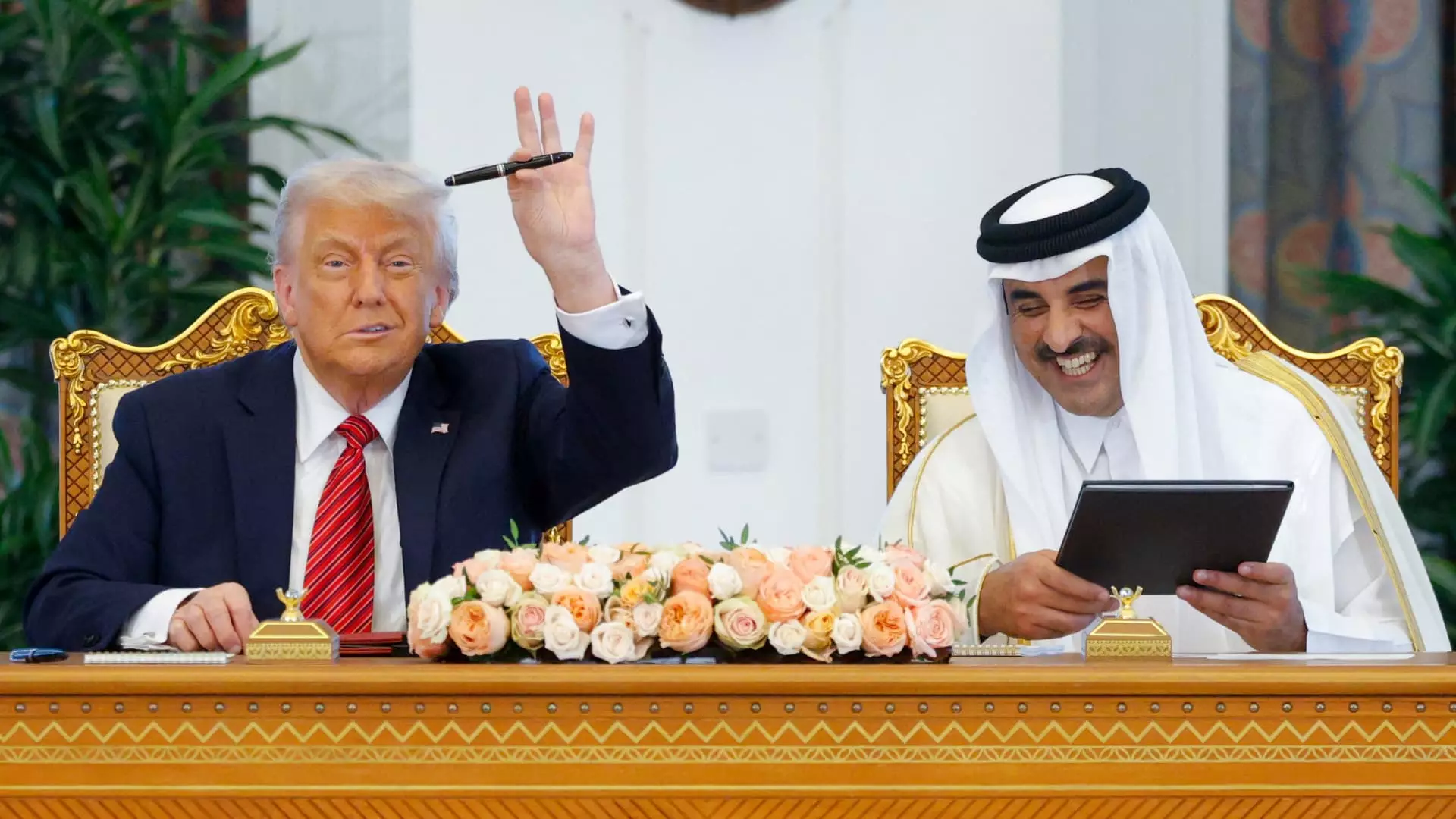The recent spectacle surrounding Qatar’s offer of a Boeing 747 jet to U.S. President Donald Trump raises profound ethical questions about the nature of international relationships. While Qatar’s Prime Minister, Sheikh Mohammed bin Abdulrahman al-Thani, insists that this is a routine exchange between allies, one cannot help but wonder whether it represents something far more insidious. To describe this gesture as purely diplomatic seems naive; the stench of influence peddling lingers heavily in the air. In an era where Washington’s relationship with foreign powers is scrutinized at every turn, the appearance of impropriety is an issue that transcends mere public perception—it is the foundation of trust in governance itself.
The Cloak of Legality
Al-Thani vehemently defends the transaction as entirely legal and transparent. He portrays it as a reflection of a longstanding institutional relationship between Qatar and the United States. However, legality does not equate to morality. Just because something is permitted under the law does not absolve it from ethical scrutiny. The offer of a lavish gift—a $400 million jet—coincides strangely with defense contracts worth billions, effectively inviting the accusation that Qatar could be attempting to grease the wheels of influence in Washington. The narrative that this is simply a bilateral arrangement rings hollow in light of potential power dynamics at play. When the stakes involve national security, defense spending, and political favoritism, one must question whether such transactions are entirely benign.
Trump’s Vulnerability
In this intricate dance of diplomacy, the figure at the center—Donald Trump—finds himself in a precarious position. His administration’s dealings with foreign powers have continuously drawn fire, and as accusations of financial impropriety swirl, the offering from Qatar may serve as a catalyst for uproar. Trump’s earlier embrace of a $400 million jet, coupled with his characterization of it as a temporary substitute for Air Force One, is a flashpoint for critics. It plays directly into the concerns that he has turned the presidency into a business transaction, perpetually hunting for potential personal gain. When he describes the aircraft as a potential addition to a future presidential library, it further minimizes the gravity of the offer and trivializes the public’s perception of the presidency.
The Foreign Emoluments Clause and Diplomatic Integrity
Democratic lawmakers have quickly rallied around the implications of Qatar’s offer, invoking the Foreign Emoluments Clause of the Constitution. Intended as a shield against corruption, this provision stipulates that no officeholder may accept gifts from foreign entities without congressional approval. Critics of the Trump administration argue that such gifts have no place in a foundational democracy and pose a direct threat to the integrity of the office of the president. As Representative Jamie Raskin pointedly remarked, the Founding Fathers envisioned a government that remained untainted by the whims of foreign influences. Yet, here we are, mired in a scenario where a foreign entity’s gift blurs the lines of acceptable diplomatic conduct.
The Backlash and Broader Implications
The backlash from influential political figures, including Senators like Chris Murphy, underscores a mounting anxiety that transcends mere political protocol. The concern is fundamentally about trust. The safety and security of the United States should never be put at risk for the sake of maintaining favorable foreign relations. When allegiances can be bought and sold through extravagant gestures, it challenges the very essence of democracy. The perception that one nation’s lavish gift could sway U.S. foreign policy is profoundly alarming. As entertaining as the drama may be from a distance, it poses serious ramifications for U.S. sovereignty and global standing.
In Search of Integrity
As Qatar and the Trump administration continue to navigate this treacherous political landscape, one thing remains painfully clear: the interplay of diplomacy and ethics has taken center stage. Upholding integrity in U.S. foreign affairs requires more than mere rhetoric; it demands a commitment to transparency and accountability. To preserve the sanctity of democracy, it is essential that every leader, especially those at the highest levels of power, recognizes the weight of their decisions—not as opportunities for personal gain, but as profound responsibilities that shape international relations for generations to come. In a world rife with ethical quandaries, the challenge lies in discerning diplomacy from decadence, and influence from imposition.

